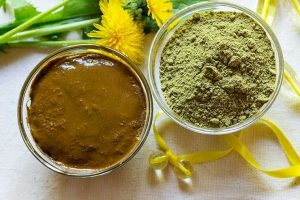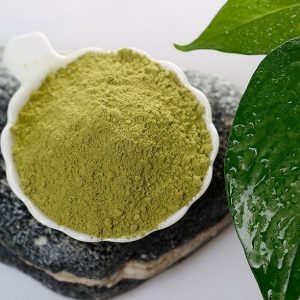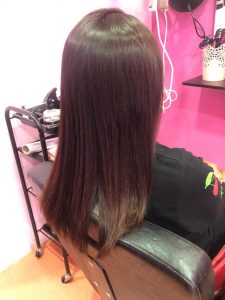About Hair Henna
Henna hair dye is an all-natural alternative to traditional chemical dyes. It’s amazing the colours you can achieve with only three simple plant-based ingredients. Whether you want to create a sun-streak effect, add soft shades of brunette or simply touch up your roots, henna hair colour is the right choice. Once you see the results, you may never chemically colour your hair again.
Our intention is to share with you in this how to use henna guide everything we have learned in these past 10 years during which our therapists applied herbal henna on our customers hair. I would also like to offer you a different perspective on the complex and fascinating henna .
After so many years of doing henna and natural herbs for hair, and getting all sorts of questions, We really felt we could use a good post on common mistakes and errors, when it comes to henna for hair (and herbs). We’ve included some amazing tips that everyone should know.

Benefits of Henna For Hair Health
Henna boosts hair growth: The natural properties of henna help promote hair growth exponentially
It can help reduce hair fall: Henna directly affects the scalp, assisting in improving follicle health. This helps curb hair fall, and also prevents and corrects hair thinning.
It conditions your hair: When combined with hydrating ingredients such as eggs, henna makes a great conditioner
It can help prevent dandruff: Henna helps remove excess grease and dirt from your scalp, including dandruff. Using mehendi regularly on to your hair not only cures dandruff problems, it also prevents them from coming back
It can control scalp itchiness: Henna has natural antifungal and antimicrobial properties that work to cool and soothe your scalp, controlling scalp itchiness in the process.
It’s a natural hair dye: One of its most obvious uses, henna makes a fabulous hair dye.
It can help repair split ends: Dry and damaged hair is prone to split ends, which is why just cutting them off is not enough.
It can make your hair thick and lustrous: The tannin present in henna actually binds with the hair to make it stronger, and does not even penetrate the hair cortex, ensuring minimum damage. This ensures thicker, lustrous hair with each application.
It balances pH and oil production: Henna helps calm down overactive sebaceous glands, controlling oil production in the process. It also helps restore the pH of the scalp to its natural acid-alkaline level, thus strengthening the hair follicles
It nourishes your scalp and hair: Henna has naturally nourishing properties, which makes it the perfect ingredient to turn dry, damaged and unhealthy hair into soft, shiny, manageable tresses

This list will never be complete, and we’ll need all of you to help add to it
- Henna is natural plant , Not any chemical or processed dye. Henna is a natural plant, and it grows in very hot climates. As a natural plant it makes only one colour: orange-reddish tones. Plants don’t give us more then one colour. Sometime Commercial boxes of henna will tell us they are henna “colours”, but in fact they are pre-mixed boxed of henna that contain other herbs, and ingredients (sometimes even chemicals, additives, or metallic salts). It’s also not a processed dye or ink.
- From Henna can get variety of colours? Plenty of commercial brand for henna hair dyes will show a variety of colours available. Natural and 100% pure henna only dyes orange-reddish tones. Beauty Matters always recommend to please carefully read the list of ingredients on the product you purchase, or just purchase 100% pure henna powder from a reliable supplier.
- Henna will not lighten your hair tone. Henna is a chemically-free all natural hair dye. It doesn’t contain chemicals, or bleaching ingredients that would lighten your hair.
- Use of indigo to bring Hair colour to Black . Indigo is sometimes called black henna, but this is yet another plant that will colour the hair brown to black tones (must be used with henna to give these results). Indigo does not have dye release the same way that henna does, so it must be mixed separately and applied separately as well (recommended next day ). Please make sure your indigo does not contain PPD, which is can be quite damaging to the hair, and skin.
- Can I apply chemical dye or my choice of colour after hair henna. As long as you use 100% pure henna powder, then yes you can use chemical treatments as you normally do. You won’t have to wait months to do your chemical treatments/dyes as the hair dresser would like to tell you. Keep in mind, that the hair industry is run by major companies that push all types of chemical products. They are in no way trained, or specializing in henna, and natural hair care (for the most part). You should give your hair a break in between treatments. Roughly about 1-2 weeks.
- How much henna do we need to use for our hair? No, you don’t need 500 grams of henna powder to colour bra strap length hair. Firstly you have to check how long is your hair, and next to check is, how thick is your hair. Those are questions that need to be consider in order to access how much henna powder you required You also don’t want to spend more money on products then you have to. General speaking, shoulder length hair needs about 100 grams of powder, bra strap length about 200-250 grams, hip length about 300-350 grams, and so on. We recommend to always take help of anyone in house to apply henna for your hair, if you will try to apply yourself ,there are chances that you will not be able to cover scalp and hair in all corner of the head. Beauty Matters do provides services for applying hair henna by expert hair dressers with services of wash and dry at best affordable price .
- Use of Lemon in henna? No, you don’t have to use lemon juice as your primary, and only liquid ingredient in your henna (herbal) hair recipe. So many people would have turned away and abandoned henna and natural herbal hair care, if they thought they could only use lemon juice. Lemon juice is acidic, and can be very drying on your hair. You can add a small splash of lemon juice, if you’d like. The most highly recommend liquid to use is warm water. You can even use tea (any variety of your choice), or coffee brews as well (for dryer scalps be careful with these as they can also be a bit drying). Chamomile tea has become quite popular to use in henna hair recipes.
- Is henna a kind of permanent hair dye? Yes,It is a permanent hair dye. Henna alone only dyes orange-red tones. The only way to remove it is to let it grow out, or cut your dyed hair. That is why it is always recommended you do hair colour test first before application.
- Can henna application can create dry hair? Yes they can be drying. If you have a dry scalp, then you will need to moisturize. You can add moisturizing oils ( the best recommended oil is olive oil), yoghurt, or a conditioner to your henna recipe, or use a good hair oil after your herbal hair treatment. Beauty matters use herbal hair oil (made of 9 herbs by beauty matters) in all our henna paste to eliminate any drying effect .
- Does henna lock out moisture? Some people believe that because henna coats the hair strand that no amount of moisturization can reach it. In fact no, henna will not lock out moisture from your hair. Oil, and condition your hair as usual, and as needed. The results will be amazing, and your hair will get all the moisturization it needs.

- Can henna loosen my curl pattern? Yes, a lot of people have seen loosening effects of their curls when using henna . There is a small percentage of people that don’t get any loosening of their curls. If you prefer to maintain some of your curl, then add amla powder to bring them back. Keep in mind, that amla powder also tones down the red of henna. You can also use amla powder in your henna recipe to maintain the curls in your hair, in case you don’t want to lose your curl pattern. Beauty Matters using amla and other herbs in henna paste from the inception.
- How to Choose Henna Powder ? Keep in mind that some henna companies use variety of attractive name of their henna powders, and this causes more confusion then necessary and sometime for allure customers. The basic, and most important information would be which country is the henna from, how fresh is it (current crop year is best), and how well sifted . There is no henna for a particular race or culture. Henna doesn’t discriminate. It is for everyone to use. Make sure you get yourself 100% pure henna, and herbs. Getting organic herbs is even better because you are guaranteed that the company/farm has gotten proper certification, and inspection that there are no pesticides used, and is an overall healthier, and safer product.
- Why indigo didn’t work as expected. Indigo should be mixed separately from the henna paste in its own bowl. These are herbs that require a little more care, and their own time for dye release alone. Allow indigo to sit 20-30 minute. Should you be using indigo for black tones you can use this after you’ve first done your henna treatment. Do not allow indigo to sit out for more then an hour.
Some Tips !
- Adding sugar to your recipe makes the henna paste smoother.
- Pre-oil your hair, if you tend to get really dry when using henna, and herbs in your hair. This will give you the moisture boost you need. This also helps prevent dripping when dyeing your hair. Some of the best hair oils to use are olive oil, coconut oil, argan oil, and camellia oil. You can go for hot hair oil message with beauty matters before henna application to get rid of dry hair.
- In order to get deeper, richer red results use a good, fresh henna powder that is known for giving rich red results . After 2-3 applications, the color will deepen further.
- Wash your henna, and herbal hair treatments out really well. Use a lot of conditioner to help with the process. If you don’t wash it all out well, then your scalp will feel itchy, and gritty.
- Remember to always be opened minded, and if needed, adjust your recipe to suit your hair. Just because someone else does it, doesn’t always make it right for you.
- Keep your recipe simple. Don’t get overwhelmed with a lot of the other ingredients that are added to recipes.
- Mixing henna with brewed tea or coffee instead of water. Mixing it with brewed coffee or tea adds a tint of colour brown to your hair naturally. The result of the colour brown varies from hair to hair depending on the already existing shade of your hair colour. Strongly brewed coffee or tea stains your hair and gives your hair a beautiful darker shade of brown.
- Add some grated beetroot to hot boiling water kept on a burning stove and let it boil till the amount of water reduces to half. After it cools, blend both the beetroot and the same boiled water that has cooled into a thick liquid consistency. Finally, add the mixture to henna, it will give you a new elegant colour with a bit burgundy shade.
- You can soak some fenugreek seeds in water, a night before you wish to apply henna. Then, grind the seeds into a thick paste. Mix it into henna the next day, before application. It helps in controlling hair fall and cures scalp infections.
Contact us at +65 9227-0086 for your appointment for hair henna at Beauty Matters Asia .
